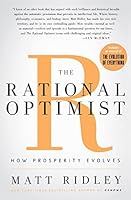At some point, human intelligence became collective and cumulative in a way that happened to no other animal. (Location 98)
Specialisation encouraged innovation, because it encouraged the investment of time in a tool-making tool. That saved time, and prosperity is simply time saved, which is proportional to the division of labour. (Location 132)
The experience has left me mistrustful of markets in capital and assets, yet passionately in favour of markets in goods and services. Had I only known it, experiments in laboratories by the economist Vernon Smith and his colleagues have long confirmed that markets in goods and services for immediate consumption – haircuts and hamburgers – work so well that it is hard to design them so they fail to deliver efficiency and innovation; while markets in assets are so automatically prone to bubbles and crashes that it is hard to design them so they work at all. (Location 153)
I am a rational optimist: rational, because I have arrived at optimism not through temperament or instinct, but by looking at the evidence. (Location 169)
People are not only spending a longer time living, but a shorter time dying. (Location 269)
The cumulative accretion of knowledge by specialists that allows us each to consume more and more different things by each producing fewer and fewer is, I submit, the central story of humanity. (Location 658)
